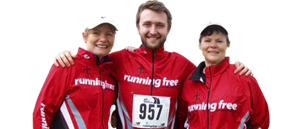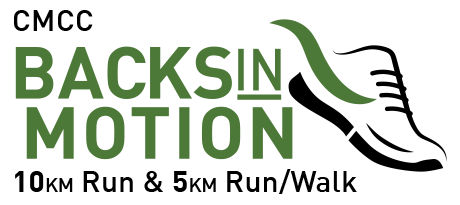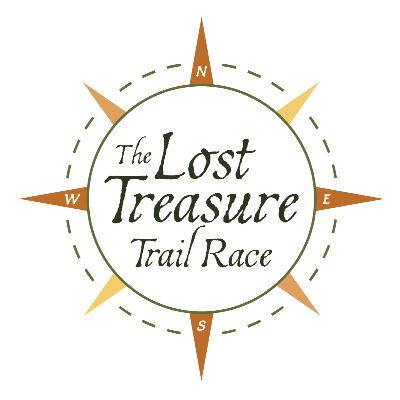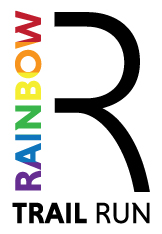For 15 years, running has served as my omphalos. I’ve fluctuated between several training platforms with very different goals each season. I’ve tracked my data along the years, with intent to vigorously apply it to my current ambitions so I may soar to new heights, and to generate knowledge from both the successes and the setbacks. Well, in theory, haha.
No matter the year in question nor the goal at hand, the most unwavering reliable and instrumental standard year after year has been ensuring the aerobic base is powerful. This substructure serves crucial multipurpose; but perhaps the most important above all, is its protective shield. If the shield is weak; my legs are susceptible to heightened stress, my joints/ligaments/tendons/bones are at risk for overuse, the nucleus is fragile. Furthermore, my body endures and struggles to repair, it takes many days to recover from hard efforts, exhaustion or fatigue becomes an x factor, worse off performance is mediocre or hindered at best. If the shield is strong; my legs are durable, my muscles are conditioned, my nucleus is stable. Furthermore, my body can withstand constant stress of either heightened volume or intensity, work exceptionally arduous yet maintain its core vigour, all while bouncing back even stronger raising the ceiling. Truth is, the base building phase can take longer than a year to achieve. The body has to learn how to acclimatize to impact, learn resiliency to recover day after day, and how to make use of what’s been applied to it in training converting miles to profits.
Perhaps I have loved ultra running for this reason alone. In a world of instant gratification; one elixir diet, one magic pill, one click, so on and so forth, you get the point. Success in this sport takes effort and patience. This effort is crafted from continuity, from time oriented months or years of service. This requires determination, grit, and persistence. Ultra runners are indeed, an eclectic bunch. Loved ones have pondered how my brain is hardwired. It wouldn’t be preposterous to suggest that I have shown peculiar levels of obsessive compulsion to run for excessive lengths of time, or demonstrated strange levels of attention deficit when not running!
Anywho, back to the base! This is one thing I’ve always honed in on to warrant the body can endure a high volume of stress and yet recover efficiently and better yet reap the benefits of the said training… that is the key right there… understanding if my body is reaping the benefits of the said training… this is probably the biggest fundamental error with rookie ultra runners… To what degree are you paying attention to your body, outcomes from particular workouts or weekly regimes, or if and how you are adapting to the training? Ie- how does your body feel that same night, the next day, prior to your next run, over the span of the week or even month, how many days does it take to bounce back? Are you adjusting, stepping back when you need to, forging ahead when you’re not pushing hard enough, or recalibrating your plan? What is the net benefit of one workout from another? Am I measuring the successes to evaluate its effects? Do I adjust on demand if the program isn’t meeting my desires or best value?
Minor details end up being MAJOR details in the bigger picture!
Outside of this factor, there are other steady qualities to high performance. Including qualitative output, training frequency in zone 2, and firing up the determination so that you are persistent and steadfast. However, aside from each of these points, one major contradiction to my previous year’s knowledge is performance vs volume.
Why this is a big topic for me this year, is because every coach, book, elite, and or author I’ve ever read has nailed into my head that more mileage = greater stamina = faster times. However, this year has taught me that perhaps there is a very distinctive variance with the number of miles my body requires in order to produce fast times for ME! I didn’t run more than 60 kms per week this entire year. I ran a few long races spread throughout, but my output never exceeded 60 clicks on average. That’s inferior in comparison to what I’ve run over 15 years. In retrospect, in 2017, I ran closer to 100 km weeks, cycling 2 to 3 weeks of consistent 120 km weeks. I was able to race a Sub 7 hour 50 miler at Sulphur Springs. Yet this past year, on half the mileage, I managed to race 67.5 kms averaging a 5:10 km throughout, on an icy hilly course, in under 6 hours. How do I explain this phenomena?
I believe there are three points of interest. Firstly, quality vs quantity. Because I didn’t have the time I normally do for training, I simply cut out recovery runs, any junk workouts that were just placed in to bulk my workload. When I did that, I conserved energy and allowed my body to recoup fully with additional days off. Therefore, each workout I did do was much more focused, had a proper intent and desire to achieve specific results. Because I was always hawk attentive on purposeful workouts, perhaps I sharpened my economical function even more than before because I was always training in a way that maximized clean effortless form. When I talk about “clean” form, I refer to the “flow”; effortless gait, swift cadence, fierce mental game, etc.
Secondly, I raced 3 x 50 km or more runs in the year that shaped my adaptive response to derive benefits from both glycogenic and aerobic capacities. It is evident that races I did earlier in the year beyond 50 km allowed for my body to adapt and maintain stamina to race at high efforts later in the year. Aside from the 3 races, I did 3 x 50 km training runs. So 6 x 50 k or more spread out throughout the year reinforced my endurance capacity. Which is way less than previously adopted.
Thirdly, perhaps more consequential than previous years of training, playing in zones 4-5(a) with more precedence, is singlehandedly the most superlative influence in my high performance for 2019. In large reasoning, I coached the Cambrian College Gryphons Cross Country Running Team this year. Why does this matter? Because I was mentoring a group of 20 year olds whom were attacking vicious paces to hammer out fast finishes for distances of 6 km for ladies and 8 km for men. There were many practices that I ran side by side to push athletes to their peak. What was happening over the span of 2 months, was this gradual adaptation to fast twitch muscle fibres, to a high lactate tolerance, and more importantly to establish a network of biorhythmic pathways to decrease the level of lactate accumulation. I was running 800 metre intervals, 1 km repeats, 10-16 km tempos, and pyramid workouts. My legs got used to surging, and my mechanics were flawless.
Fast forward one month later, 2 weeks after College Nationals. I hold a 5:10 km in an icy trail race for 67.5 km in under 6 hours with a base of no more 60 km per week. I have always been on the side of debate that in order to run fast, you have to run fast, as often as possible. It always boggles my brain when I read articles stating that speed isn’t a priority in ultra running. Yet no one goes into a race hoping to run as slow as possible? The goal may not be to win a race, but the goal is surely always to run your very best effort!
I find that my very best effort means pushing that line of comfort into the grey zone. Ironically, my father once told me that growth and discomfort are synonymous. He meant that in order to improve, learn, evolve, you need to be willing to push yourself beyond your comfort. Challenge fears, face difficulties, embrace the unpleasantries. I also have found that in a world full of opinions, strive to have none… haha! I mean that silence is a wondrous teacher, and I also mean that when you don’t have an opinion about how sore a muscle is, or how bad the weather is, or how the trail’s condition is not up to your standard; then you can truly immerse yourself into what is. The lens becomes clear. You can make use of the resources available to you. You can dive into what is possible right here and now. No distractions, no hesitations, no qualms, no resistance, no whining, no drama. When you do something, make sure you are 100% invested! You can’t control variables outside of yourself, but the beauty is that you always decide who is in the driver’s seat of your consciousness. Haha!
Where am I going with this information. Another year and I am enlightened again by deepening the correlation between high performance and lactate thresholds. Also denouncing that volume necessitates faster finishes. One major conclusion, if you can just take in one theme from this piece, is the more you can test your lungs and legs at higher speeds for longer durations, the faster your ultra times will be. Best of all, that you don’t need to tack on countless mileage to do so. I believe it is essential to become your very own scientist. Be willing to try new things, or remove elements, in order to test or explore hypotheses that work best for you!
For anyone looking to learn more about lactate thresholds, type it in to any search engine and take a gander at what the research indicates. In the most simplistic explanation, training in this zone frequently allowed for me to maintain a very fast speed without essentially spending a lot of energy to do so.
On a note of caution. Everybody’s body acclimatizes to stress and taxing efforts differently. It is imperative to develop mindfulness with your initiatives. That way you understand how hard and how far you can push, responsibly, without undue hardship on your structure. Also knowing when to take a few notches off the gas petal when you do push too hard, too fast, too soon, and adjust or modify your efforts until it recoups its losses. Understanding plateaus vs. gains is also a big topic, for another day! Happy trails…
jp.forest.runner


















